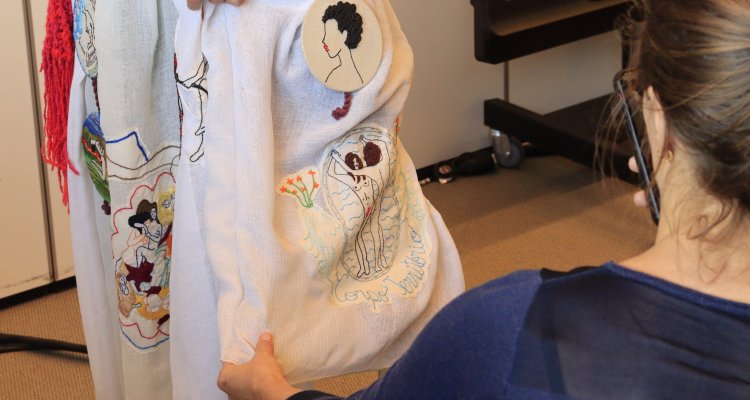
News
Reflecting on 'The Illusion of Abundance' movie - conclusions from the Environmental Justice course
One of the big questions of our time is how to deal with competing claims to scarce natural resources. This question is also central in the course on Environmental Justice in Practice, run at Wageningen University in period 2. Through lectures and research, students learn to assess real world cases of resource competition through an Environmental Justice lens. For us this means to explore how environmental goods and bads are (unequally) divided, why this happens, and what distributive, recognitional and procedural justice could look like in a specific case. In this process, students are invited to reflect on their own role, position and profile in the context of natural resource conflict, importantly based on different experiences of environmental justice activists.
The course just concluded, and we want to share insights from one of the most impactful sessions we had in the course, that included watching the movie, ‘The illusion of abundance’. The movie by Erika Gonzalez Ramirez and Matthieu Lietaert premiered in 2022 and details the fight of three women in Honduras, Brazil and Peru whose lives are impacted by extractivist and violent actions of corporations.
Máxima is a Peruvian indigenous peasant who lived peacefully in a tiny house right next to Yanacocha, the second largest gold mine in the world. [..] One day, Yanacocha wanted to expand their activities. The Conga project found Maxima's land and house on their way…
Carolina lives in the heart of the Brazilian historical mining region of Minas Gerais. After the mining toxic waste dam broke in Brumadinho in 2019, following the one in Mariana in 2015, she decided to find justice for the 272 persons killed in only a few minutes. [..]
In 2015, Berta Cáceres won the prestigious Goldman Prize for her fight against the construction of the Agua Zarca hydroelectric dam [in Honduras]. A few months later, she was murdered at home. Her daugther Bertha was suddenly forced to become a national land defender that no one can stop anymore to show light on what happened to her mum. [..]”
(from the movie website)
The corporations that impact these people, and force them to come into action to preserve their lives and livelihoods, have ties with Europe and the US. It stirs feelings of extreme sadness and loss, inspiration through the strength of the women in the movie. It also brings up questions about our responsibilities and our level of influence. We feel fragmented; disconnected from the places that enable us to live the way we do. Simultaneously, we feel a call to action and reflection. What stories can we share with our families, friends and colleagues? To what things in our lives and work can we say no? What movements do we want, and can we support?
Last year, Carolina de Moura Campos and Danilo Chammas joined us for a session in the course. Their fight and her energy sparked a lot of emotion in the classroom. We take time to process these emotions, to sit with them, to understand the inequalities and why they are persistent, and based on this to find the spaces where we feel we can contribute to change sustainably. For Carolina, the listening ear that the students provided gave her energy and fed her conviction that there are opening avenues for changing the world to a more just and equitable place.
We thank the filmmakers Erika Gonzalez Ramirez and Matthieu Lietaert and IUCNNL for making the movie available for the course. More information on the official movie website, and social media (Facebook & Instagram : @illusionofabundance, Twitter : @Theillusiondoc)